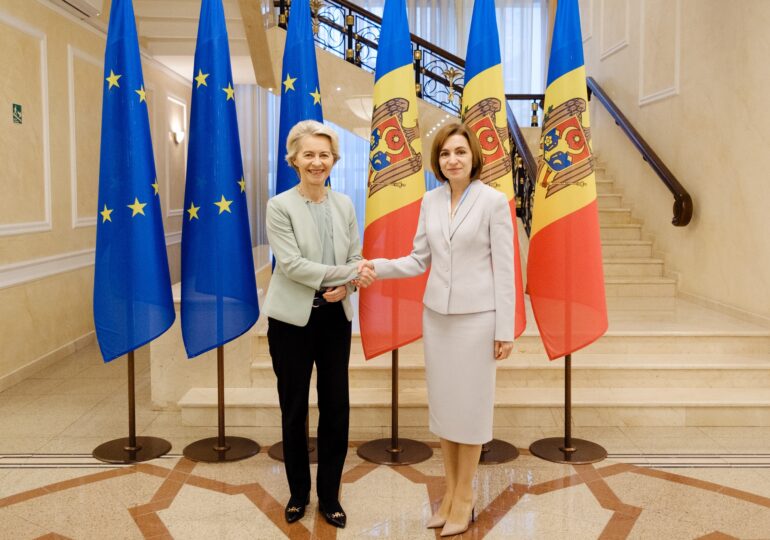The European Union is considering the possibility of opening the first „negotiation cluster” with the Republic of Moldova at the beginning of September, just before the parliamentary elections in the neighboring country.
It would be a major step in the accession process that, for the first time, would place Moldova ahead of Ukraine on the path to integration into the European bloc, as reported by Politico, citing European diplomatic sources.
According to three diplomats and a European official, the decision could be made following an informal meeting of EU European Affairs Ministers. The opening of the first cluster would send a strong political signal in favor of President Maia Sandu, whose pro-European party is facing pressures and disinformation from Russia ahead of the September 28 election.
"A way must be found for the opening of the first cluster," stated Siegfried Mureșan, a Romanian MEP and President of the EU-Moldova Association Committee in the European Parliament. "It would send a signal to Russia. It would eliminate the argument from the Russian narrative that there is no progress on the path to EU accession."
The Risk of Straining Relations with Ukraine
The decision comes with significant risks for the relationship with Ukraine, which has progressed in parallel with Moldova in the accession process.
Kiev could interpret the move as a negative signal at a critical moment when negotiations for peace in the conflict with Russia are at the center of the international stage.
"There is a danger of sending a wrong signal to the Ukrainians," warned a Ukrainian diplomat. "At a time when the future of peace is being discussed in Alaska, we must maintain the perspective of EU accession as strong as possible."
Both Ukraine and Moldova have met all the technical requirements for the opening of the first negotiation cluster, stated a spokesperson for the European Commission. "There is no objective reason to block Cluster 1," they declared.
Hungary, the Main Obstacle in Ukraine's Path
While Moldova seems to have the support of all 27 member states to move forward, Ukraine's candidacy is blocked by Hungary. Prime Minister Viktor Orbán has made opposition to Ukraine's EU integration a central point of his 2026 election campaign.
This opposition puts pro-expansion countries, including Denmark, which currently holds the rotating presidency of the EU Council, in a difficult situation: if they maintain synchronization between the two candidacies, neither can advance; if they allow Moldova to move forward, they risk causing dissatisfaction in Ukraine.
To ease tensions, European officials are exploring alternative options to demonstrate continued support for Ukraine, such as including it in the Horizon Europe research program or the Erasmus educational exchange program.
"There are many ways we can bring Ukraine closer to Europe, outside the formal negotiation process," stated a EU diplomat. "It is important to maintain the momentum and to make it clear that Hungary's opposition is not considered legitimate and that the true reward is the end of the process."
A Historic Moment Influenced by the Trump-Putin Meeting
Diplomats acknowledge that the situation can change rapidly, especially in the context of Friday's meeting between Donald Trump and Vladimir Putin in Alaska.
If the two leaders reach an agreement where Ukraine's integration into the EU becomes a key element, Trump could pressure Orbán to withdraw his opposition.
Some European officials insist that maintaining the unity of the two candidacies is essential for the morale of Ukrainians and for the future of the region. "It is a historic moment, and we must analyze this situation comprehensively. EU accession is a crucial part of any peace agreement," concluded a European diplomat.
B.B.

